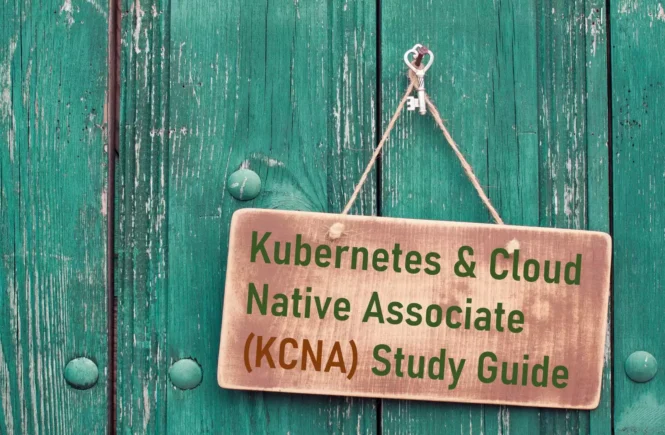How to Prepare for the CKAD Exam?
Preparing for the CKAD Certified Kubernetes Application Developer exam? Don’t know where to start? This post is the CKAD Kubernetes developer Certificate Exam Preparation Study Guide (with links to each exam objective).
I have curated a list of articles from the Kubernetes documentation and other blogs on the web for each objective of the CKAD exam. Please share the post within your circles so it helps them to prepare for the exam.
CKAD Kubernetes Certification Exam Voucher
Coupon: Use Code SUMMER25
CKAD Kubernetes Developer Online Course
| LinkedIn Learning (Free trial) | Kubernetes Dev. Cert. Preparation Exam Tips |
| Pluralsight | Learning Path: Developer Certificate Exam |
| Whizlabs | Kubernetes App Developer Course |
| Udemy | K8s Dev. Exam Preparation by Zeal Vora |
Kubernetes App Developer Practice Test/Book
| Udemy Practice Tests | Kubernetes Application Developer practice test |
| Amazon e-book (PDF) | Kubernetes Application Developer Study Guide |
CKAD Kubernetes Developer Learning Materials
| Linux Foundation Bootcamp | Cloud Engineer Bootcamp [24 weeks] |
| Coursera | Fundamentals of Kubernetes Deployment |
Check out all the other DevOps/Kubernetes certificate study guides
Full Disclosure: Some of the links in this post are affiliate links. I receive a commission when you purchase through them.
CKAD [Kubernetes Developer] Syllabus
CKAD Core Concepts – 13%
Understand Kubernetes API primitives
Create and configure basic Pods
Multi-container Pods – 10%
Understand Multi-container Pod design patterns (e.g. ambassador, adapter, sidecar)
Patterns for Composite Containers
Multi-Container Pod design patterns in Kubernetes
Ambassador pattern
Adapter pattern
Sidecar pattern
Pod Design – 20%
Understand Deployments and how to perform rolling updates
Deployment provides declarative updates for Pods
Understand Deployments and how to perform rollbacks
Understand Jobs and CronJobs
A job creates one or more Pods
Running Automated Tasks with a CronJob
Understand how to use Labels, Selectors, and Annotations
Setting Labels and Annotations
Amazon link (affiliate)
State Persistence – 8%
Understand Persistent Volume Claims for storage
Creating a persistent volume claim
Persistent volumes in Kubernetes
Configure a Pod to use a persistent volume for storage
Configuration – 18%
Understand ConfigMaps
Configure a Pod to use a ConfigMap
Understand Security Contexts
Configure a security context for a Pod or Container
Security best practices for Kubernetes Deployment
Define an application’s resource requirements
Managing resources for Containers
Assign memory resources to Containers & Pods
Assign CPU resources to Containers & Pods
Create & consume Secrets
Distribute credentials securely using Secrets
Understand ServiceAccounts
Configure service accounts for Pods
Observability – 18%
Understand LivenessProbes and ReadinessProbes
Configure liveness, readiness & startup probes
When should you use a liveness probe?
Setting up health checks with readiness & liveness probes
Understand container logging
Printing logs for a container in a pod or specified resource
Understand how to monitor applications in Kubernetes
Tools for monitoring resources
Kubernetes Monitoring: Best practices, methods & existing solutions
Monitoring application performance in Kubernetes
Understand debugging in Kubernetes
How to debug Pods and ReplicationControllers?
Services & Networking – 13%
Understand Services
Using a service to expose your app
Connecting applications with services
Demonstrate a basic understanding of NetworkPolicies
Kubernetes network policy recipes
This brings us to the end of the Certified Kubernetes Application Developer (CKAD) Exam Preparation Study Guide.
What do you think? Let me know in the comments section if I have missed out on anything. Also, I love to hear from you about how your preparation is going on!
In case you are preparing for other DevOps / Kubernetes certification exams, check out the Kubernetes study guides for those exams.
Follow Me to Receive Updates on CKAD Exam
Want to be notified as soon as I post? Subscribe to the RSS feed / leave your email address in the subscribe section. Share the article to your social networks with the below links so it can benefit others.

![Certified Kubernetes Application Developer [CKAD] Exam Study Guide](https://ravikirans.com/wp-content/uploads/2021/08/Certified-Kubernetes-Application-Developer-CKAD-Exam-Study-Guide-665x435.webp)




10 Comments
Ckad syllabus is getting updated wef July. Is that correct?
yes
I get to k on Ckad syllabus is getting updated from 1st July. Is that correct?
Hi Ravi,
U have marked 30% discount for CKAD exam voucher, however there is no discount available.
Please assist.
I am sorry Pavan. Seems the offer ended last month
Hey Ravi, please dont be sorry. That was only an enquiry. In case you get to know the offer again, request you to post it.
Many thanks for the reply.
Sure, will do
Hi Ravi Kiran,
Thanks for this detailed article. I have a quick question. If an exam question doesn’t tell about the namespace then which namespace should we use for the answer?
Thanks
Gopesh
Hello Gopesh,
Use the default namespace when none is specified